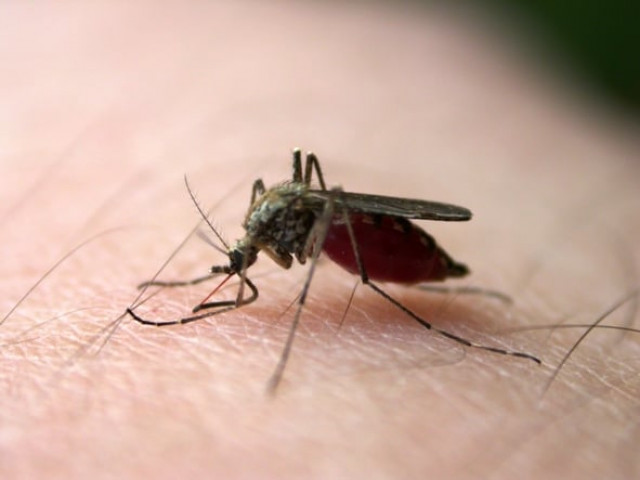Time to use mosquito repellents
Two more suspected dengue cases reported, doctors advice precautions.

As increasing number of people fall prey to the epidemic in Punjab, dengue is also quickly spreading in the capital. Two more suspected cases of the fever were reported from Islamabad on Monday.
After being brought to the Pakistan Institute of Medical Science (Pims), their blood samples were sent to National Institute of Health (NIH) for dengue serology.
Sharing the details of the patients, Dr Rubina Kamran deputy director Indoor Patients at Pims said, “One of the patients,Raza, works with the Islamabad police; the other is Faiza, who belongs to Azad Jammu and Kashmir.”
The spread of dengue in the capital has so far been muted, but as the rainy seasons continues, the vulnerability of general populace against this disease also increases. “To date many suspected cases of dengue fever were brought to the hospital out of which only one Javed Iqbal, 46 from Jhelum was diagnosed positive and was discharged after getting treatment,” she said.
According to the NIH officials, from January to todate, 11 cases of dengue fever have been confirmed in the capital.
Talking to The Express Tribune, a former official of Ministry of Health who is working with National Malaria Control Programme said after the devolution of the ministry, the malaria programme, which included a plan to prevent dengue, was shelved.
Under this programme, the officials were responsible for distributing mosquito nets, investigating the root cause of the spread of this disease in the areas of outbreak, mapping and suggesting interventions to control it.
Moreover, Dr Samia Babar, Director Health Awareness Society said the reason behind spread of dengue fever is the negligence of people.
“They [people] do not much care about covering water containers and having clean water. They do not cover their body properly specially during the peak hours which are after and before the sunrise and sunset, and do not bother to apply mosquito repellents,” she said.
Dr Babar further said there are many doctors who directly give antibiotic to the suspected dengue patients which is a completely wrong practice and may result in haemorrhages.
“The suspect dengue fever patient should be first kept under observation for a while and should be given light medicine later after being diagnosed positive then should be given antibiotics,” she suggested.
Published in The Express Tribune, August 30th, 2011.



















COMMENTS
Comments are moderated and generally will be posted if they are on-topic and not abusive.
For more information, please see our Comments FAQ